20 min read
Investment Property Loans: Types and Considerations
If you’re in the market to buy an investment property, the type of loan you pick will directly impact the size of...

National Stress Awareness Day is coming up this November 6, which makes now the perfect time to start taking stock of your stress levels and what you can do to bring them down. We all have days where we feel overwhelmed by the stressors in our lives, but luckily there are many self-therapy tips you can employ to help bring yourself back to a happy neutral. Whether you’re a landlord dealing with eviction proceedings or a tenant dealing with pesky roommates, these stress management tips may be just what you need to get through the day.
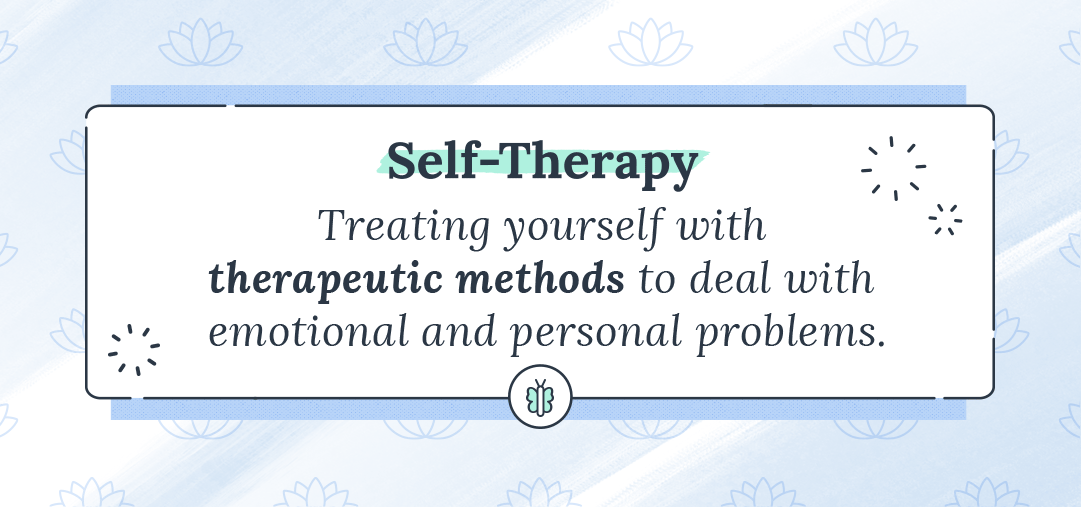
Self-therapy is the practice of treating yourself with therapeutic methods in order to deal with emotional or personal problems. Self-therapy can encompass a variety of therapeutic philosophies including psychotherapy, cognitive-behavioral therapy, and mindfulness practices. For this year’s National Stress Awareness Day, we’ll focus on providing simple self-therapy tips that you can incorporate into your weekly routine.
Since the self-help genre has gotten a bit of a bad name in recent years, you might be feeling like this all sounds too good to be true. However, scientists have been studying the effects of self-counseling for years, and the results have been promising. In one study, researchers compared the effects of self-therapy against traditional, face-to-face counseling. They found that each method actually had equal effects on participants’ levels of anxiety!
Additional studies have also shown that a wide variety of holistic self-therapy practices can help reduce stress and improve your mood. A study from The Medical Journal of Australia showed that both exercise and bibliotherapy (the therapy of written words) were effective in improving winter depression, and another showed that exercise, relaxation training, and bibliotherapy all helped to improve anxiety. One study even showed that self-help therapy had positive effects on insomnia! For quick exercises, view our apartment workouts guide.
In order to take advantage of these benefits, here are some of the best ways you can treat your mind, body, and soul with stress-relieving self-therapy.
Are you the type of person who has multiple to-do lists, with one master to-do list that has all your other lists on it? Though to-do lists can be helpful in getting you organized, sometimes they become too much and actually stress you out more. If you’re finding yourself in this type of situation, just focus on two types of lists: “high-priority” and “other”. Move everything that needs to be done today to the high-priority list, and just focus on that. This will help you avoid decision paralysis and focus on the most important tasks at hand.
Instead of dwelling on whatever caused your situation and what you should have done differently, concentrate your energy on what actually matters; the solution. Hindsight is 20/20, and getting yourself worked up over what happened in the past won’t allow you to work toward fixing it for your future.
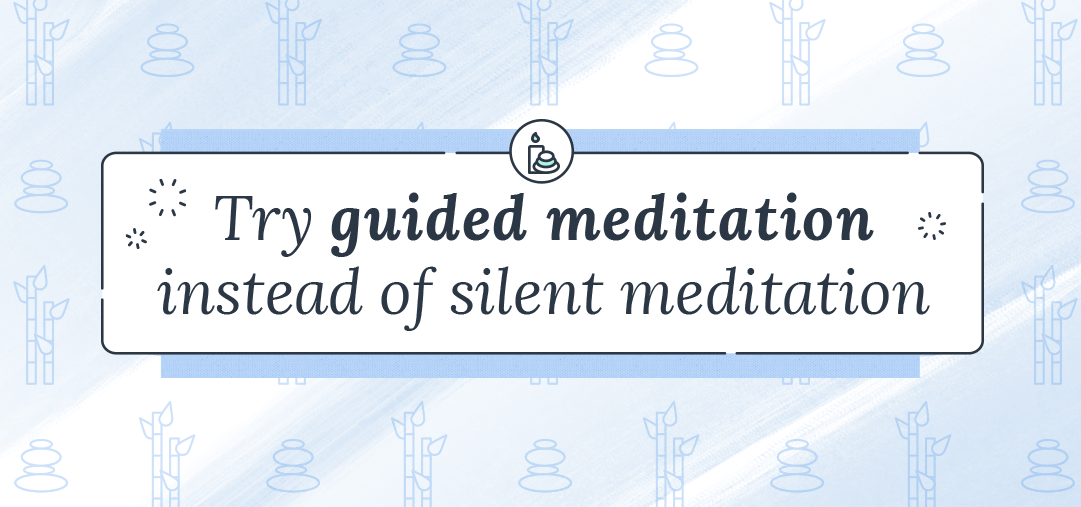
Meditation is a great way to get your mind off of your stressors and find joy in the present, but for most of us that is easier said than done. If you don’t think you’ll be able to meditate properly alone (or you know you can’t from experience!), try a short guided meditation every morning. There are plenty of free online resources available, so try a few until you find one that resonates with you.
Sometimes, you need to put yourself in someone else’s shoes in order to realize how good you’ve got it. Take time every day to really think about what you are grateful for in your life. This can help put the negatives in perspective and make you realize that they’re not so all-encompassing after all. Try keeping a gratitude journal that you contribute to every day, so you can look back on all the things you have to be grateful for.
It’s all too easy to get wrapped up in a pattern of negative thoughts, which can ultimately lead to you feeling overly-stressed and anxious every day. Try to recognize the negative thoughts that you are repeating to yourself, and work to let them go and replace them with positives. It sounds silly, but you can actually retrain yourself to react better to stressful situations by forming positive thought patterns.
That’s right, your morning pick-me-up could be contributing to your overall stress levels. That’s because caffeine can actually increase your body’s level of cortisol, the stress hormone. It can be easy to get caught up in a vicious cycle with coffee as well, as caffeine leaving your system can make you feel sleepy so you compensate by drinking even more. It can be hard to quit caffeine cold turkey, so try cutting down on your daily cups or switching to tea to start.
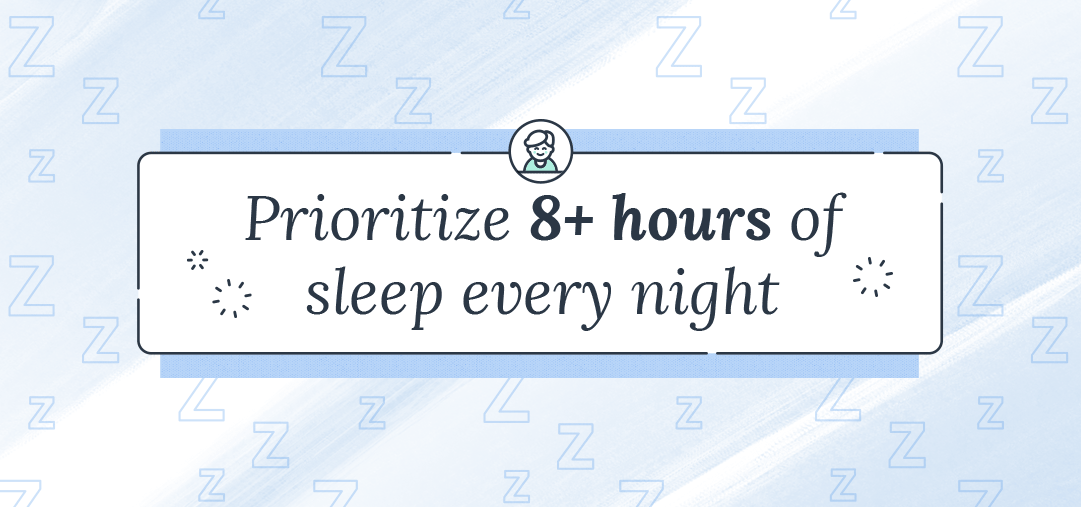
We’ve all had the feeling of going to bed exhausted, despairing at the problems we have to continue to face the next day. Then after 8 hours of solid rest, you wake up and everything seems okay. This is because sleep plays an essential role in how we react to and deal with daily stressors. When we get a full 7-9 hours of sleep, we’re able to think clearly and keep our emotions in check the next day, instead of feeling foggy and irritable. Not getting the recommended amount of sleep for a prolonged period of time can lead to a slew of health risks, including anxiety and depression.
As we learned earlier, exercise is one of the best ways to release stress and can be an effective self-therapy method for dealing with anxiety. Making time for the gym or fitness classes can be hard during a busy day, so take a few minutes to walk it out when you can. A half-hour walk during your lunch break and an evening walk after dinner can work wonders for clearing your head and helping you release stress through physical activity.
Listen to your body, because it has important things to tell you! It can be easy to get into the habit of ignoring when you feel hungry, exhausted, or frustrated so you can keep working, but this is not something you should make a pattern of. Denying yourself the things you need is just going to make you more stressed in the future, and you’re not going to be doing your best work at these times either. Instead of pushing through, it’s better in these situations to give your body what it needs and return to the task later on.

Sticking to a healthy diet will help you feel better all around, which will allow you to deal with daily stress in a more productive way. However, you can take this a step further by incorporating mood-boosting foods into your diet. These foods are rich in vitamins and minerals that can help improve your overall sense of wellbeing and include things like salmon, yogurt, and avocados.
There’s a difference between complaining and venting, so don’t feel bad about confiding in a friend and explaining what is stressing you out. Talking to others about our problems is cathartic, and helps us process our emotions better than keeping them bottled up inside.
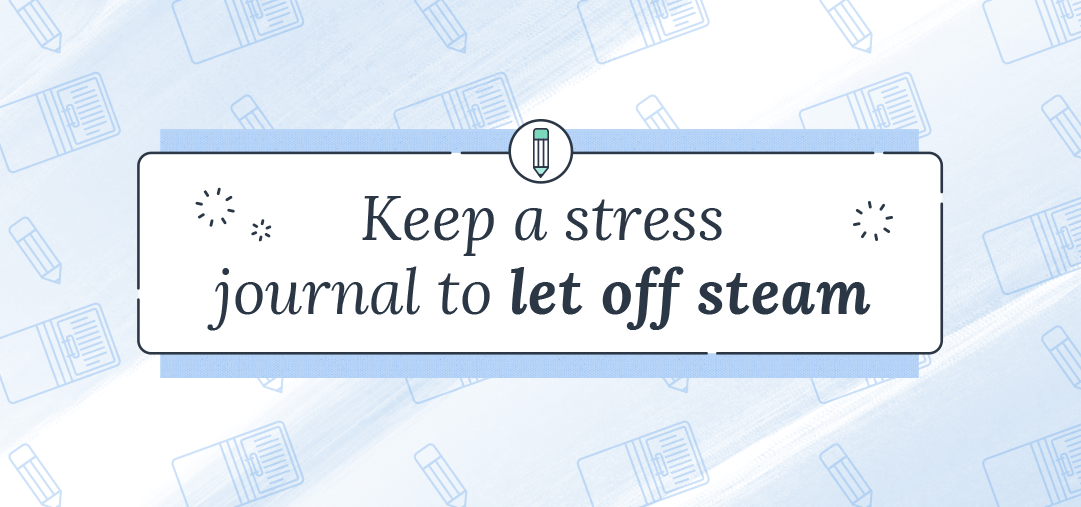
This is the same idea as talking to someone, but you can let off steam whenever you need to without feeling like you are bothering someone! Not only can keeping a stress journal be a stress-relieving activity, but it can also help you identify patterns of behavior or people in your life who may be contributing to your anxiety.
This is one of the most difficult self-therapy tips to implement, but also one of the most worthwhile. Identify your limits when it comes to workload (both actual work and emotional) and start turning people down when they ask you for things that you know are going to overwhelm you. There’s no way you’re going to be able to be successful if you don’t have any time to think, plan, and relax.
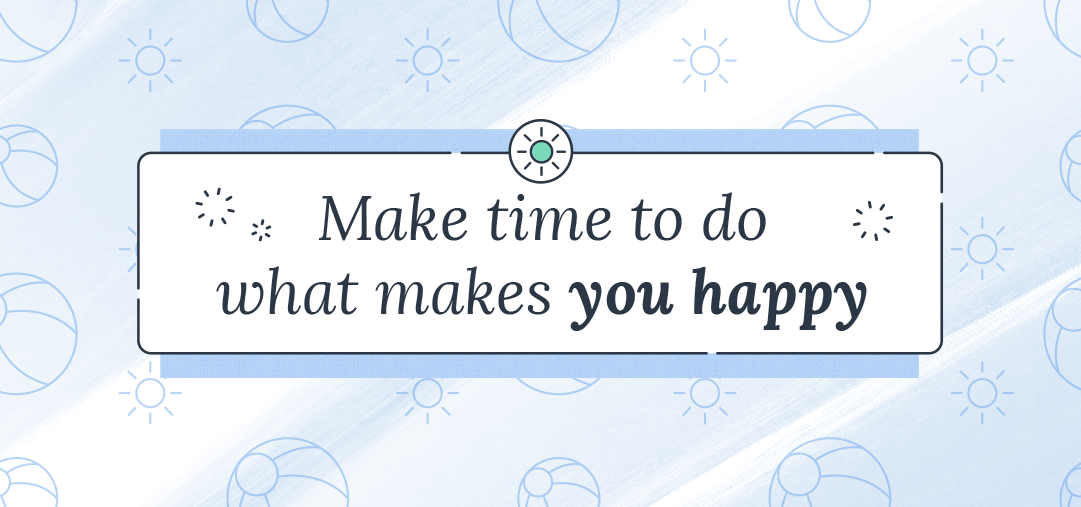
All work and no play would make anyone dull! It may seem counterintuitive to take time away from your work when you’re already stressed and overwhelmed, but often it is time away that gives us the perspective we need to problem-solve. Taking time to do the things that make you happy, whether that’s a weekend-long trip to a music festival or a weekend-long trip to your couch, will allow you to get out from under your stress cloud and see the sunshine again.
Talk down that inner control freak, and understand that things are never going to go exactly as you want them to. People are unpredictable, and even the best-laid plans can go awry. Accept that you aren’t able to control what your tenants, coworkers, and friends decide to do and that what is in your power is how you choose to react to these types of situations.
Download our full guide on self-therapy to take with you as a reminder for this National Stress Awareness Day.
The next time you’re dealing with a tricky tenant situation, keep these tips in mind and try to incorporate them into your weekly routine. You’ll feel less stressed and be able to better deal with these types of issues in the future. In order to save yourself further headaches, make sure you’re completing a thorough tenant screening and background check for every applicant as well.
DISCLAIMER: TurboTenant, Inc does not provide legal or medical advice. This material has been prepared for informational purposes only. All users are advised to check all applicable local, state and federal laws and consult legal or medical counsel should questions arise.
Additional Sources: Front Psychiatry | Journal of Clinical Psychology | Neuropsychiatric Disease and Treatment Journal | Anxiety, Stress & Coping: An International Journal
20 min read
If you’re in the market to buy an investment property, the type of loan you pick will directly impact the size of...
16 min read
For many homeowners, the question of how to rent out your house could pop up at some point. But renting out a...
15 min read
The 1031 exchange is a strategic tool real estate investors use to swap properties while cashing in on tax benefits. With a...
Join the 700,000+ independent landlords who rely on TurboTenant to create welcoming rental experiences.
No tricks or trials to worry about. So what’s the harm? Try it today!